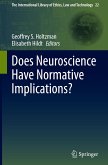Nietzsche's Immoralism begins a two-volume critical reconstruction of a socialist, democratic, and non-liberal Nietzschean politics. Nietzsche's ideal of amor fati (love of fate) cannot be individually adopted because it is incompatible with deep freedom of agency. However, we can create its social conditions thanks to an underappreciated aspect of his will-to-power psychology. We are driven not toward domination and conquest but toward resistance, contest, and play-a heightened feeling of power provoked by equal challenges that enables the non-instrumental affirmation of suffering. This incompatibilist, anti-teleological psychology leads to Nietzsche's distinctive immoralism: the abandonment of cultural means of human improvement for a historical materialist politics of breeding that produces future higher types through changes to our political order's material conditions. Politics becomes first philosophy: it is not grounded in moral values but is instead the very source oftheir legitimacy. Moreover, despite Nietzsche's professed aristocratism, his immoralism offers a stronger foundation for a renewed left, attacking conservative politics at its very root: the belief in moral order, authority, and responsibility.
"Nietzsche's Immoralism: Politics as First Philosophy, provides an argument that Nietzsche's postmoral philosophy offers a metapolitics that does not rely on moral persuasion. ... Miyasaki presents the two volumes as a case for a socialist politics as the proper mode of breeding a type with the capacity for amor fati. He is committed to the consequences of radical fatalism as the result of Nietzsche's critique of morality." (Paul Kirkland, The Review of Politics, Vol. 86 (3), 2024)
"Donovan Miyasaki's new book, the first of two volumes of masterful Nietzsche scholarship, has come at the perfect time for those interested in Nietzsche's relation to political thought. ... The book is at its strongest when it is explaining and interpreting Nietzsche's thought, from elaborating his hard in compatibilist determinism to demonstrating the implicitly left-wing commitments of his core philosophy. Miyasaki consistently offers close and careful readings of Nietzsche's work to back up his arguments in a highly convincing manner." (Paul Gorby, Marx & Philosophy Reviews of Books, marxandphilosophy.org.uk, March 23, 2023)
"Donovan Miyasaki's new book, the first of two volumes of masterful Nietzsche scholarship, has come at the perfect time for those interested in Nietzsche's relation to political thought. ... The book is at its strongest when it is explaining and interpreting Nietzsche's thought, from elaborating his hard in compatibilist determinism to demonstrating the implicitly left-wing commitments of his core philosophy. Miyasaki consistently offers close and careful readings of Nietzsche's work to back up his arguments in a highly convincing manner." (Paul Gorby, Marx & Philosophy Reviews of Books, marxandphilosophy.org.uk, March 23, 2023)








